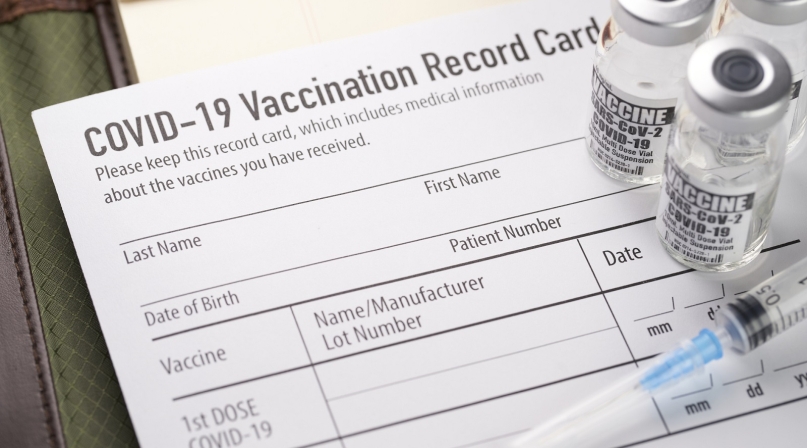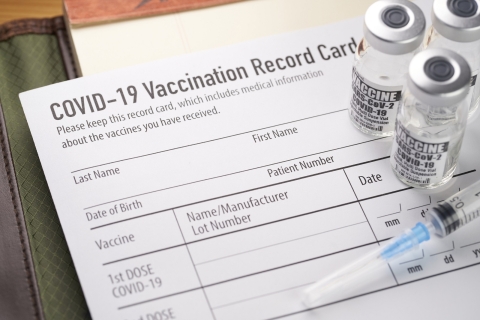Virus surge prompts county action

A recent surge in COVID-19 cases, fueled by the more contagious Delta variant, has prompted some counties to reissue mask mandates, regardless of vaccination status, in government buildings or all indoor settings and in some cases require vaccinations for employees. At the same time, the Centers for Disease Control and Prevention is advising masking indoors in counties with substantial or high coronavirus spread, a classification that applies to most of the South and West.
Leon County, Fla. was the first in the country to require employees to be vaccinated, giving them a deadline of Oct. 1 to be fully vaccinated. County Administrator Vince Long also required new employees to be two weeks past their final dose of their vaccine before starting work. Employees granted an accommodation must wear masks at all times while working and may be required to submit weekly negative COVID tests.
“This is very simple and very serious. As an employer, we are required to provide a safe work environment for employees, and unvaccinated employees pose a significant risk to spread the virus,” Long wrote in an email to all employees. “As an essential government agency, we are obligated to ensure our operational readiness to serve our community, and virus outbreaks among our workforce that could have been avoided pose a very real threat to our operational readiness.”
Orange County, Fla. Mayor Jerry Demings has made the same requirement of county employees in his jurisdiction.
The Tallahassee Democrat reported that Gov. Ron DeSantis (R) was considering legal action against the county’s requirement, which his spokeswoman said would potentially violate employees’ right to privacy.
Meanwhile, despite a high vaccination rate, the City and County of Denver are mandating vaccines by the end of September for all of their employees, all hospital workers and employees in clinical, long-term, home health, childcare, school and correctional settings.
Others are taking a more targeted approach. Mecklenburg County, N.C., is requiring all public health employees be vaccinated, as will Monroe County, N.Y. In Dallas County, Texas, masks are required in its courthouse.
After Gov. Doug Ducey (R) banned mask mandates in Arizona, Pima County Administrator Chuck Huckelberry will recommend the Board of Supervisors, at its Aug. 10 meeting, require employees receive their first dose of a vaccine by Oct. 1.
St. Louis County, Mo. was among the first to mandate masks again in all public indoor spaces starting July 26, though the county council soon overturned Executive Sam Page’s order for mandatory masking in all indoor spaces. Missouri Attorney General Eric Schmitt filed a lawsuit contesting the mandate.
In Nevada, Gov. Steve Sisolak’s (D) emergency declaration for masks in public indoor spaces covered 12 of the state’s 17 counties in the CDC’s substantial or high transmission zones, covering both urban Clark County and rural Esmeralda County, which was one of the last counties in the United States to record a positive case.
In California, six weeks after the state stopped requiring people to wear masks indoors, seven counties in the San Francisco Bay area made their own public health orders. Alameda, Contra Costa, Marin, San Francisco, San Mateo, Santa Clara and Sonoma counties have all mandated “well-fitting masks” for anyone older than 2 in any indoor public setting, regardless of their vaccination status.
Solano County, however, did not act with the rest of that group. Health Officer Bela Matyas explained his hesitance.
“As these mandates are being promulgated, they don’t address the problem that is occurring,” he told KRON News. “Our cases are very clearly not occurring in public places. They’re occurring in people’s homes, at parties, barbecues, picnics, camping events and so issuing a mask mandate in the indoor public space environment isn’t going to change that. In fact, if you [examine] data in those counties that have already issued mandates, there has been no change in the level of disease.”
New York City will require proof of vaccination to enter indoor restaurants and gyms, taking an approach that rewards those who are vaccinated.
On the private side, many businesses have begun mandating vaccinations for employees to return to the office for months, and some, like Tyson Foods, give bonuses to frontline workers who get the vaccine.
President Biden called on state, territorial and local governments to provide $100 payments for every newly vaccinated American to help boost vaccination rates. The U.S. Department of the Treasury is offering technical assistance to local governments so that they may use money from the State and Local Fiscal Recovery Funds to make that happen.

Attachments
Related News

HHS Secretary Kennedy touts fixes for obesity, chronic illness, mental health issues
Counties can help improve health outcomes by prioritizing prevention over treatment, Robert F. Kennedy Jr., secretary of the U.S. Department of Health and Human Services told NACo Legislative Conference attendees.

Drug tracking software helps counties identify trends, save lives
Florida counties are using an artificial intelligence tool called Drug TRAC to track and report drug trends, with the aim of providing quicker outreach and saving lives.

White House Executive Order establishes national substance use disorder response
On January 29, the White House issued an Executive Order (EO) establishing the Great American Recovery Initiative, a new federal effort aimed at coordinating a national response to substance use disorder (SUD).
